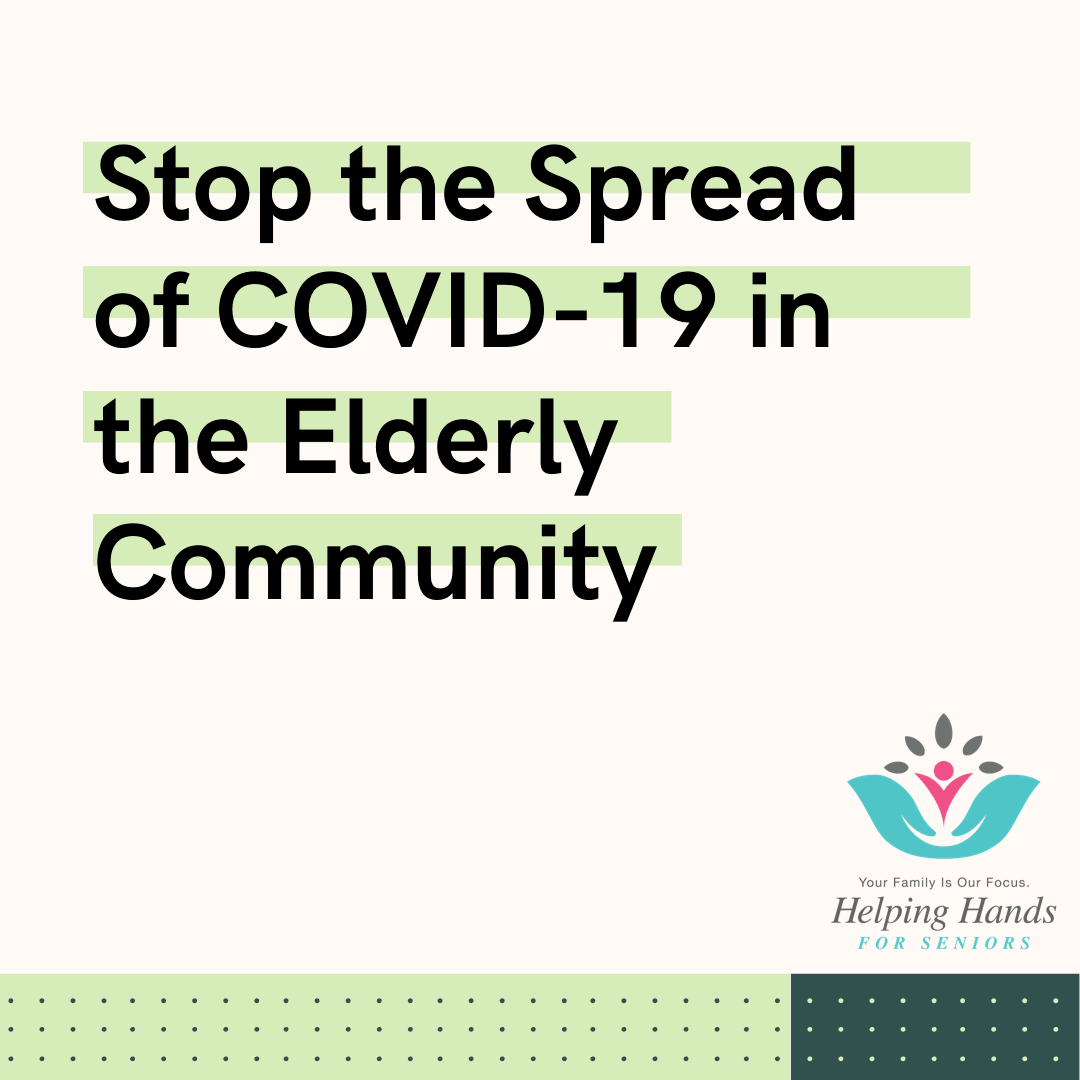Stop the Spread of COVID-19 in the Elderly Community
As COVID-19 (coronavirus) spreads in the U.S. and globally, it is known that older people 65+ are at a higher risk of serious illness. Especially older adults and people with pre-existing medical conditions including heart disease, lung disease, diabetes, cancer, and hypertension according to the National Foundation for Infectious Diseases.
Why are they at a higher risk for this specific virus? Because our immune systems grow weaker as we age, which makes it more challenging for older adults to fight off infectious diseases. Chronic diseases are more common with age, can compromise the immune system, and make people more vulnerable to serious complications.
How does COVID-19 spread?
The CDC states that the virus is thought to spread mainly from person-to-person.
- Between people who are in close contact with one another (within about 6 feet).
- Through respiratory droplets produced when an infected person coughs or sneezes. (These droplets can land in the mouths or noses of people who are nearby or possibly be inhaled into the lungs.)
- Contact with infected surfaces, followed by touching your nose, mouth, or eyes, may also spread COVID-19. Although this is not thought to be the main way the virus spreads.
Preventing the spread in elder communities:
Because elder communities (like retirement homes and independent living facilities) house seniors at risk, the CDC provided guidance to help the residents, and those who help serve them, slow the spread of the virus and prevent serious illness.
What residents can do:
- Stay in your homes or outdoors away from groups of people, as much as possible.
- Limit visitors to persons essential to maintaining their health, well-being, and safety. Social interaction is important; however, in-person social interactions are associated with increased risk of infection.
- Learn and practice alternative ways to interact, including replacing in-person group interactions with video or telephone calls.
- Establish a “buddy” system to ensure they stay connected.
- Ensure continuity of the regular care and medical services they receive.
- Have medication and supplies on hand.
- Keep their homes clean and disinfected.
What owners, operators, or administrators can do:
- Cancel all public or non-essential group activities and events.
- Clean and disinfect all common areas and shared facilities.
- Inform residents, workers, volunteers, and visitors about COVID-19.
- Encourage personal protective measures
- Help residents establish a “buddy” system to ensure they stay connected.
- Consider limiting the number of non-essential visitors.
- Screen, when possible, and advise workers and essential volunteers.
What workers can do:
- Follow standard infection prevention and control practices, basic personal protective recommendations and any other site- and task-specific infection prevention and control measures implemented by their employer.
- Maintain social distance of at least six feet from residents whenever possible. Outside of work, avoid contact with persons who have symptoms of COVID-19.
- Watch for symptoms of illness and follow the recommended steps if you get sick.
Steps for older adults to protect themselves:
Those who are most vulnerable must take steps to protect themselves and stay healthy. Their loved ones should also take steps to reduce the risk of passing on infection.
The CDC issued these preventative steps for older adults:
- Stay home.
- Wash your hands often with soap and water for at least 20 seconds especially after you have been in a public place, or after blowing your nose, coughing, or sneezing. If soap and water are not readily available, use a hand sanitizer that contains at least 60% alcohol. Cover all surfaces of your hands and rub them together until they feel dry.
- Avoid touching your eyes, nose, and mouth with unwashed hands.
- Avoid close contact (6 feet, which is about two arm lengths) with people who are sick.
- Clean and disinfect frequently touched surfaces daily. This includes tables, doorknobs, light switches, countertops, handles, desks, phones, keyboards, toilets, faucets, and sinks.
- Avoid all cruise travel and non-essential air travel.
- Call your healthcare professional if you have concerns about COVID-19 and your underlying condition or if you are sick.
Steps to cope with stress or loneliness:
As daily routine is disrupted, fear and anxiety about the COVID-19 pandemic can be overwhelming and cause strong emotions. Because COVID-19 is more dangerous for older adults, they’re also at risk of loneliness and isolation as friends and family are advised to stay away.
The CDC provides these tips for seniors to support themselves emotionally:
- Take breaks from watching, reading, or listening to news stories and social media. Hearing about the pandemic repeatedly can be upsetting.
- Take care of your body. Take deep breaths, stretch, or meditate. Try to eat healthy, well-balanced meals, exercise regularly, get plenty of sleep, and avoid alcohol and drugs.
- Make time to unwind. Try to do some other activities you enjoy.
- Connect with others. Talk with people you trust about your concerns and how you are feeling.
- Call your healthcare provider if stress gets in the way of your daily activities for several days in a row.
- Reach out if in crisis. If you, or someone you care about, are feeling overwhelmed with emotions like sadness, depression, or anxiety, or feel like you want to harm yourself or others call
- 911
- Substance Abuse and Mental Health Services Administration’s (SAMHSA’s) Disaster Distress Helpline: 1-800-985-5990 or text TalkWithUs to 66746. (TTY 1-800-846-8517)


